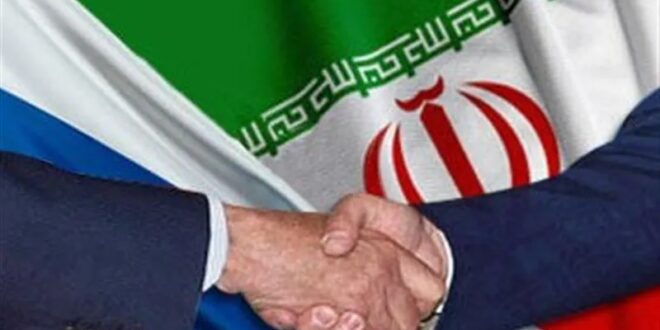The presidents of Iran and Russia weighed plans to finalize a comprehensive agreement on long-term cooperation and broaden the regional and international collaboration between the two countries.
In a telephone conversation on Tuesday, Iranian President Ebrahim Raisi and his Russian counterpart Vladimir Putin highlighted the common stances of Tehran and Moscow on bilateral, regional and international issues, stressing the need to finalize the comprehensive agreement on long-term cooperation between the two nations.
“We are prepared to finalize the comprehensive document on long-term cooperation to carry out the process of promotion of relations and cooperation between the two countries rapidly,” Raisi said.
Highlighting the common views and synergy between Tehran and Moscow on many international subjects, the Iranian president said the two countries share stances on the fight against unilateralism and on strengthening multilateralism.
He also stressed the need for mutual cooperation in the region, adding, “We believe that the continued presence of outsiders in Syria is illegal and runs counter to the will of the Syrian nation and government, because it threatens stability and security of that country.”
On the developments in Afghanistan, Raisi said, “We deem the presence of Daesh (ISIL or ISIS) in Afghanistan dangerous for the region and that country, so we must be vigilant in the face of the threats of such a plot.”
Iran urges the formation of an inclusive government in Afghanistan involving all ethnic and political groups, he added, noting that such a broad-based government will ensure the security of Afghanistan.
He also hailed Russia for supporting Iran’s nuclear rights and for stressing the need for the termination of all sanctions against Tehran.
Raisi emphasized that Tehran is “quite serious” in the Vienna negotiations on the revival of the 2015 nuclear deal and also serious in protecting the rights of the Iranian nation in the efforts to have the sanctions lifted.
The Iranian president further welcomed Russia’s initiative for stability and calm in the Caucasus region, as both leaders rejected any change in the geopolitical status in the region or the boundaries of the regional countries.
Raisi also expressed gratitude to Russia for backing Iran’s membership in the Shanghai Cooperation Organization and for supplying coronavirus vaccines to Iran.
For his part, Putin highlighted the common stances and the convergence of Moscow and Tehran on many issues, voiced support for Tehran’s proposals for a new deal on long-term cooperation, and said Russia is resolved to finalize and implement the agreement immediately.
Russia attaches great value to the enhancement of economic relations and the finalization of joint investment plans with Iran, Putin added, pointing to the positive trends in the elevation of the bilateral, regional and international cooperation.
He also touched on the cooperation between Russia and Iran in Syria, saying the joint efforts have helped Syria maintain its independence and destroyed the hub of terrorists in that country.
Putin reiterated Russia’s support for the nuclear rights of the Iranian nation, hoping that the JCPOA parties would show the necessary political will in the next round of negotiations to find a way out of the current circumstances.
He further voiced concern about the situation in the Karabakh region, said that Russia seeks to launch the 3+3 consultative mechanism in order to build trust and promote cooperation in that region, and expressed hope that Iran would also support that format.
Putin also expressed Russia’s determination to work with Iran in the battle with the coronavirus pandemic and in delivering the shipments of vaccine.
 Eurasia Press & News
Eurasia Press & News




